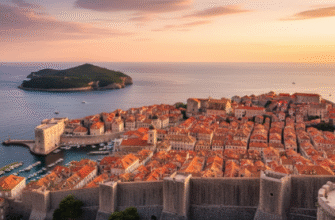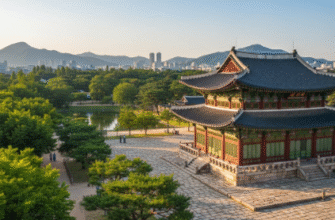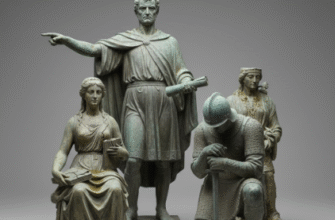It seems almost unbelievable today, but the dust we sprinkle on our food once built and shattered the greatest empires on Earth. For centuries, spices like
pepper, cloves, nutmeg, and cinnamon were not just culinary ingredients; they were the engine of the global economy, more valuable than gold, and the driving force behind exploration, conquest, and brutal warfare. The quest to control the sources of these aromatic treasures redrew the map of the world and set in motion the forces of globalism that still shape our lives.
The Venetian Lock and the Arab Key
For much of the Middle Ages, Europe’s access to the exotic spices of the East was controlled by a powerful duopoly. Arab merchants transported spices from the Moluccas (the Spice Islands in modern Indonesia), India, and Sri Lanka across the Indian Ocean and overland through the Middle East. From the ports of the Levant, Venetian sailors and merchants would then take over, distributing the precious cargo throughout Europe at an exorbitant markup. This arrangement made the Republic of Venice fabulously wealthy and a dominant maritime power in the Mediterranean.
The Venetians and their partners guarded the secrets of the trade routes jealously. They spun tales of fantastical beasts and dangerous lands to deter rivals, ensuring their monopoly remained intact. For a European monarch, the cost was crippling. A pound of nutmeg could cost more than a cow, and a sack of pepper was valuable enough to be used as a dowry or to pay taxes. This immense expense, coupled with a growing desire to circumvent the Venetian-Muslim control, lit a fire under the monarchies of the Iberian Peninsula.
A New Path on the High Seas
Portugal, a nation with a long Atlantic coastline, was the first to seriously challenge the old order. Driven by figures like Prince Henry the Navigator, Portuguese explorers systematically pushed down the coast of Africa, seeking a direct sea route to the Indies. The ultimate breakthrough came in 1498 when
Vasco da Gama successfully rounded the Cape of Good Hope and reached Calicut, India. He had shattered the Venetian monopoly in a single voyage.
The Portuguese did not come as peaceful traders. They used overwhelming naval firepower, specifically their cannon-armed caravels, to establish a new kind of empire. Instead of conquering vast swathes of land, they created a
“Estado da Índia,” a network of fortified trading posts and naval bases that controlled the key choke points of the Indian Ocean. From Goa, Malacca, and Hormuz, they dominated the spice trade through force, imposing a system of cartazes, or trade licenses, on local ships and ruthlessly punishing any who defied their authority. The profits that once flowed to Venice now poured into Lisbon, funding the Portuguese Golden Age.
Spain’s Western Gamble
While Portugal sailed east, their rivals in Spain gambled on a western route. Financed by Queen Isabella and King Ferdinand, Christopher Columbus’s voyage in 1492 famously missed the Indies but opened up the Americas to European colonization. Though Spain would become fantastically wealthy from the gold and silver of the New World, they didn’t give up on the spice race. Ferdinand Magellan’s expedition, which completed the first circumnavigation of the Earth, finally reached the Spice Islands from the east, solidifying Spain’s claim in the region and leading to the colonization of the Philippines as a key trading hub.
The Corporate Conquerors: The Dutch Ascendancy
The Portuguese and Spanish dominance, built on royal decree, would eventually be supplanted by a new, more ruthless and efficient model: the chartered company. At the dawn of the 17th century, the Dutch formed the
Verenigde Oostindische Compagnie (VOC), or Dutch East India Company. It was a revolutionary entity, arguably the world’s first multinational corporation, and it was granted unprecedented powers by the Dutch government.
The VOC was far more than a simple trading company; it was a state within a state. It possessed the authority to build forts, maintain its own armies and navies, negotiate treaties with local rulers, and even declare war. This fusion of commercial interest and military power allowed it to operate with a speed and single-minded brutality that state-sponsored expeditions could not match.
The VOC systematically and violently dismantled the Portuguese trading empire. Their primary goal was not just to participate in the spice trade, but to control it completely. They focused their efforts on the source: the tiny Banda Islands, the world’s only source of nutmeg and mace. In 1621, the VOC governor-general Jan Pieterszoon Coen perpetrated a horrifying massacre, killing or enslaving nearly the entire native population of the islands to secure an absolute monopoly. They did the same for cloves, restricting their cultivation to the island of Ambon. This brutal efficiency made the VOC the richest company in history and the Netherlands one of the world’s foremost economic powers.
The Seeds of Imperial Ruin
The very engine that created these empires—the spice trade—also contained the seeds of their destruction. The immense profitability of spices guaranteed constant conflict. The Dutch and English fought several wars over trade routes, while all European powers faced resistance from local kingdoms and sultanates who were being exploited.
Furthermore, the monopolistic model was ultimately unsustainable. The English, and later the French, managed to break the Dutch hold. The French horticulturalist
Pierre Poivre successfully smuggled clove and nutmeg seedlings from the Spice Islands in the 1770s and transplanted them to French colonies like Mauritius. The British would later do the same, planting them in Zanzibar and Grenada. As the supply of spices expanded beyond the control of a single entity, their rarity—and thus their astronomical price—plummeted.
By the late 18th century, consumer tastes in Europe were also changing. New colonial goods like
sugar, tea, coffee, and cotton were becoming more profitable and desirable than spices. The vast, expensive military and administrative infrastructure built to control the pepper and clove trade became an albatross. Weighed down by corruption, debt from constant warfare, and declining profits from its core commodity, the once-mighty VOC went bankrupt and was dissolved in 1799. The old Portuguese empire had long since become a shadow of its former self, unable to compete with its more dynamic northern European rivals. The very forces of global trade they had unleashed had moved on, leaving them behind.









